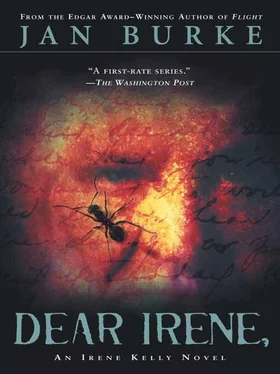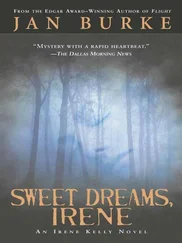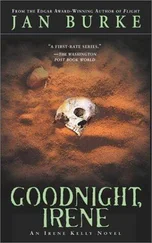“Sleeping Oak Road. Thanks for the phone – and the concern.”
LAS PIERNAS SITS on a curve of the California coastline; most of its beaches face the south. As some custom-home builders have noticed over the past five years, the views from the south side of hillside streets like Sleeping Oak Road were some of the best in the inland part of the city. You could see almost all of Las Piernas below, and the ocean beyond it. The view from the north side of the street was not so picturesque, but some homeowners had overcome this handicap by trying to build taller houses than their neighbors across the street.
Many of the homes were old by Las Piernas standards, modest dwellings built in the 1920s. About every fourth or fifth house had been razed and replaced with a larger, more modern structure. I didn’t see an oak tree anywhere.
I started on the south side, and walked from house to house, knocking on doors, asking the few people who were home if they had seen the woman in the photo, or noticed any unusual activities on the street. I asked if any of their neighbors had moved in fairly recently. If they hadn’t closed the door in my face by then, I got around to asking about their neighbors’ habits. I came across people who had grudges against others on their block, and got the lowdown on who never cut their lawn, whose kids were holy terrors, whose dog barked endlessly, and which couple got drunk and played loud music in the middle of the night.
I listened to it all, knowing that neighborly snoopiness is nothing to ignore. In among all that apparently useless information, someone may have a little gem of observation that will prove to be invaluable. But I didn’t come across anyone who had seen Rosie Thayer, or who knew of a neighbor who got home late on the night she disappeared, or who had heard or seen anything that might help me find her.
As I hiked closer to the crest of the hill, I noticed that there were more empty lots near the top, staked signs promising more new construction where the view was best. As I passed each lot, I stopped to look for trampled grass or newly turned earth. Although I was looking for Rosie Thayer and believed she was probably dead, I was quite pleased not to discover anything that looked like a shallow grave.
I had almost run out of houses on that side of the street and still had the north side to check out on the way down. I was discouraged, feeling certain that my street-name hunch was a total waste of time. By now, the police had probably found Rosie Thayer, perhaps under an oak tree in a city park, or on an embankment near a big tree. I considered using the cellular phone to check in with Lydia, but remembered the cost of calls and decided to wait.
The thought of walking back down to my car made me wish I could whistle and get it to come up the hill for me. I had no sooner formed the image than I heard a sharp whistle from somewhere behind me, and turned to see a huge woman whose gray hair was wrapped in pink spongy curlers. She was calling to a white toy poodle as it bounced its way across a pair of empty lots.
“Brutus!” the woman screeched. “Brutus, you get your fluffy white butt right back here!”
Brutus paused, looked at her, then noticed me. That brought on a canine change of program. He made a yapping charge toward me, full of purpose. The purpose looked to be a bite out of my own fluffy white butt. His plans were foiled when the woman moved with amazing speed to scoop him up. She smiled and said, “I hope he didn’t scare you. He’s not as mean as he looks.”
The dog kept yapping, and I realized that he was the one which had been described to me as the neighborhood nominee for most annoying pooch.
“No,” I said, “I’m fine.” I introduced myself, and showed the photo to her.
She stared at it for what seemed like half an hour, dog barking the whole time, then handed it back and shook her head. “Sorry, I thought I remembered her, then it just came to me that this photo is in this morning’s paper.”
“I was wondering if I could ask you a few questions about the neighborhood.”
“Sure. My name’s Molly Kittridge, by the by. Be glad to talk with you,” she said, “but let’s go inside so I can get Brutus settled down. He’s busier than a bagful of bumblebees.”
I followed her into her house, one of the smaller homes on the block. She nodded toward a chair at the kitchen table; I took it gratefully, happy to be off my feet for a while. What I could see of the house was neat and clean. The kitchen was warm and filled with the aroma of baking bread. She put Brutus behind one of those indoor gates people use to keep small children out of a room. He stopped yapping, but when I looked toward him, he gave me a growl for good measure.
Molly came back into the kitchen, suddenly touching her hair. “Lordy, I must look a sight,” she said, reaching up and pulling the curlers out.
“Don’t worry about it. You weren’t expecting company.”
“Well, that’s a fact,” she said, and proved it by talking nearly nonstop for over an hour. In that time, she told me the name of every neighbor within a dozen or so houses of her own, their children’s names and approximate ages, where they worked, and at least one of their habits, interests or problems. She told me which ones had left to visit relatives for Christmas, what state the relatives lived in, and even gave a weather forecast, saying, “White Christmas” or “No White Christmas there” depending on the family destination. She paused only twice, to take the bread out of the oven and when the phone rang. It took both of us a minute to realize the ringing was coming from the cellular phone. I answered around a mouthful of warm bread.
Lydia was calling, certain I was in mortal danger. I swallowed the bread, reassured her, learned that no one had found Rosie Thayer yet, and went back to Molly Kittridge.
“How is it you know all your neighbors so well?” I asked.
She smiled. “Well, two reasons. First off, I’ve lived here since God was a baby. My grandaddy on my mother’s side built this house as a sort of a retirement place, I guess you’d say. Southern California was a paradise then. My folks ruined his retirement by packing up the family and following him out here from Oklahoma during the dustbowl days. Lots of Midwesterners settled in Las Piernas. That’s why you can find more basements here than most places in Southern California. They’re great for tornados, but lousy for earthquakes.”
“So your family moved here before any of the others?”
“The only ones that had been here longer was the Nelsons, up at the end of the street. They died and their kids sold it to that young couple that got transferred to North Dakota.”
“This is the vacant house, the one three doors up the street?” I asked, remembering her discussion of the couple who had lived there for less than a year, were “asking way too much for that old place in this market,” but were too stubborn to lower the price before they were forced to move. After several months without any offers, the couple let their listing expire and were looking for a new real estate agent. I had heard enough about them to write and ask them how they were doing. (No kids; he, a distributor for a shoe company and she, an engineer; both crazy about bass fishing.)
She chuckled. “Not three doors, exactly. There’s no doors, windows, or anything else on half of these places up here on the crest. The old Nelson place is at 1647. There’s two vacant lots between us now.”
“You said there are two reasons you know your neighbors. What’s the second?”
“Brutus.”
He started yapping in response.
“Hush!” she commanded. He gave one more bark and settled down again. “He’s a wild little fellow. Wilder than a fox raised by wolves. I have to chase him all over the neighborhood. Now all of a sudden he’s crazy about the old Nelson place. I think he knows I don’t like hauling my old buns up to the top of the hill. And all the grass in these lots gets my hay fever a-going. But most times Brutus will come back when I whistle.”
Читать дальше












